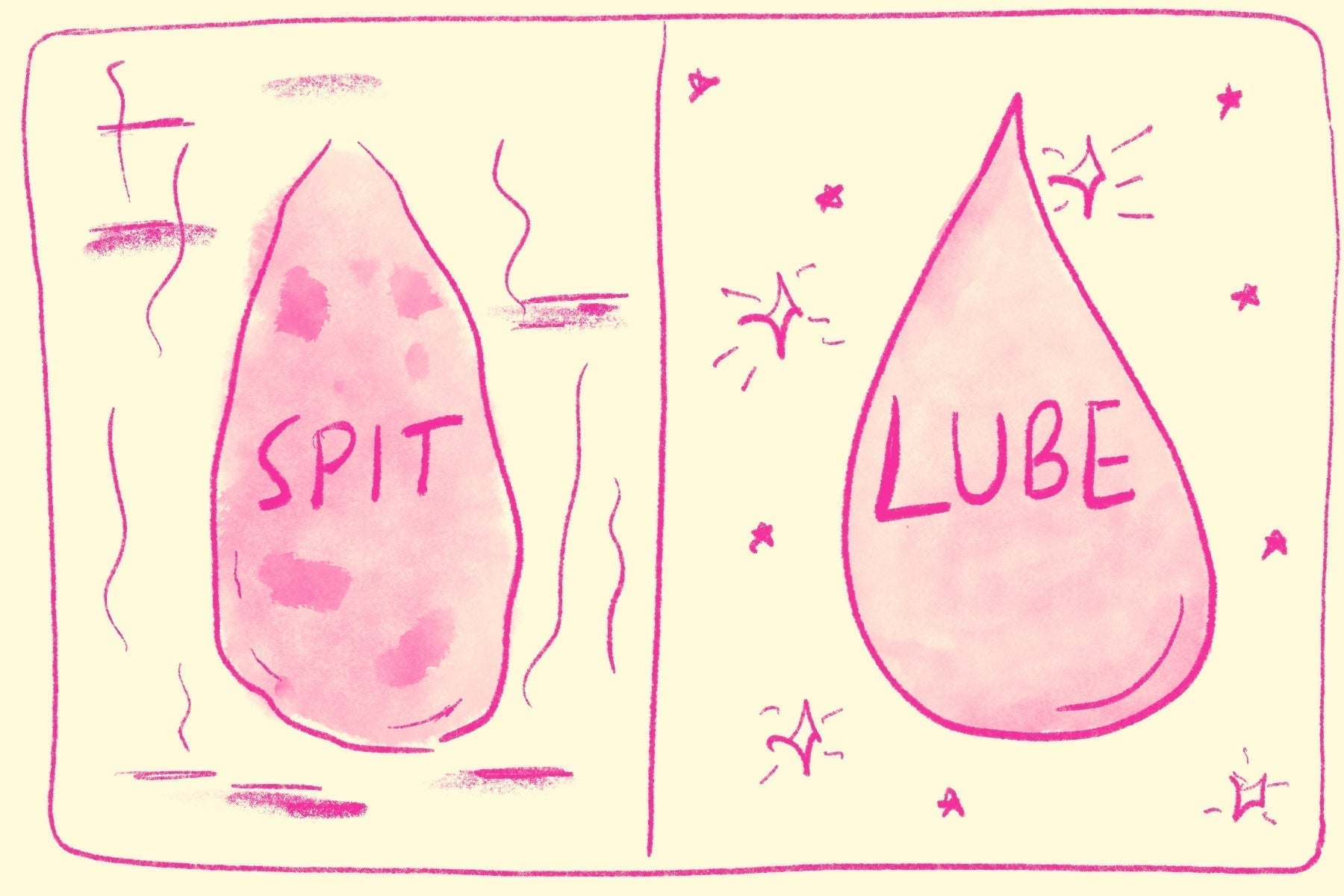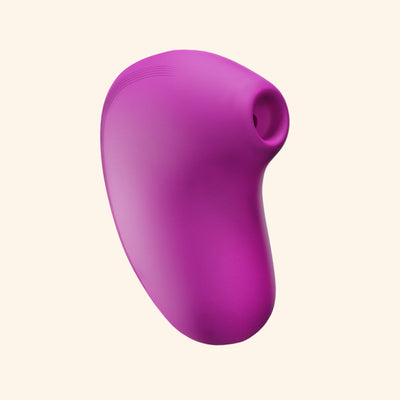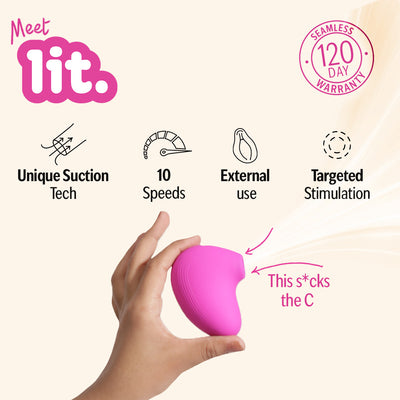Your cart is currently empty

You’ve probably seen it in movies or porn—a character casually spits on their hand or their partner’s body before going in. But is spitting really a safe or effective alternative to lube? Spoiler: It’s not. Here’s why saliva has no place as a stand-in for lube and why you should always reach for the real deal instead.
Why Do People Spit Instead of Using Lube?
Spitting during sex, especially for penetration (vaginal or anal), gained popularity mainly due to pornographic content. It’s often shown in adult films as a quick and easy way to "lube up" before penetration. In reality, this is nothing more than on-screen theatrics.

Pornographic scenes are carefully staged and edited, creating unrealistic depictions of sex. Spitting may look erotic or spontaneous, but it does not make sex safer or more comfortable. In fact, it can increase the risk of irritation, injury, and infections.
Why Spitting Is Unsafe During Sex
Here’s why relying on spit is a bad idea:
1. Saliva Dries Up Quickly
Unlike water- or silicone-based lubricants, saliva evaporates almost instantly. It doesn’t provide the long-lasting slipperiness that lube does.

-
This means you’ll end up with more friction, which can cause irritation, discomfort, or even micro-tears during penetration.
-
Micro-tears make the skin more vulnerable to infections, including sexually transmitted infections (STIs).
Water-based lubes, which are specifically designed for sex, last 10-15 times longer than saliva before drying out.
2. Saliva Is Not Sterile
Contrary to popular belief, saliva isn’t clean—it’s packed with bacteria and other microbes.
-
Your mouth contains over 700 types of bacteria, including some that are harmless in the mouth but risky when introduced into the genital or anal region.
-
Oral infections, gum disease, or minor cuts in the mouth can increase the spread of bacteria and viruses.

3. Risk of STIs and Other Infections
Spitting increases the risk of spreading infections, especially during anal or vaginal sex:
-
Oral STIs: Herpes, gonorrhea, and syphilis can spread through saliva.
-
Yeast Infections: Introducing oral bacteria to the vagina can disrupt its natural pH, leading to yeast infections or bacterial vaginosis.
-
Hepatitis and HPV: Saliva can carry traces of blood if the person has bleeding gums or mouth sores, creating a potential risk for blood-borne infections.
The Science Behind Saliva vs. Lube
Saliva simply wasn’t designed for lubrication—it’s meant for digestion. Here’s how it compares to actual lube:
1. Lubrication Properties
-
Saliva: Thin, watery, and evaporates quickly, providing minimal lubrication.
-
Lube: Thicker consistency, formulated to stay slippery longer, reducing friction.

2. Safety and pH Balance
-
Saliva: It contains digestive enzymes and mouth bacteria that can disrupt the pH of the genitals.
-
Lube: Specifically pH-balanced to match the vaginal and anal environment, preventing irritation.
3. Ingredients and Moisture Retention
-
Saliva: It contains proteins and enzymes that dry out fast, making penetration rougher.
-
Lube: It contains moisturizing agents (like aloe vera or glycerin) that keep the area hydrated and slick.

How Are Lubes Made Differently?
Unlike saliva, lubricants are specially formulated for sexual wellness.
-
Water-based lubes: Gentle on the skin, safe with condoms and sex toys, and easy to clean.
-
Silicone-based lubes: Last longer and are ideal for anal sex or longer sessions.
-
Hybrid lubes: Combine water and silicone, offering the best of both worlds.
For a smooth, safe, and irritation-free experience, use a water-based lube like DTF: Personal Gel. It’s pH-balanced, unflavoured, and enriched with aloe vera and tea tree leaf extract to reduce friction while soothing the skin. Plus, it’s vegan, dermatologically tested, and free from parabens, glycerin, and artificial additives.

Why Saliva Doesn’t Solve the Purpose
No matter how much you spit, it will never replicate the consistency, longevity, or safety of lube.
-
It dries quickly, creating more friction instead of reducing it.
-
It exposes you to infections due to the bacteria and potential pathogens in your mouth.
-
It offers zero moisturizing or pH-balancing benefits.
Spitting during sex may seem convenient, but it’s unsafe and ineffective compared to lube. Saliva dries quickly, lacks proper lubrication, and can introduce harmful bacteria or STIs. Instead, use water based lube designed for safety, pH balance, and long-lasting comfort, especially when using sex toys or vibrators for a smoother experience. Always choose lube for a safe and pleasurable time!
Conclusion: Skip the Spit—Use Real Lube
While spitting might seem convenient or spontaneous in the heat of the moment, it’s not safe or effective. Instead of risking discomfort, irritation, and infections, keep a good-quality lube handy. It provides the smooth glide you want without any of the health risks.
So, next time things get steamy, reach for DTF: Personal Gel. It’s the water-based, slick, safe, and sexy choice your body deserves.
About the author:
Zee (she/her) is passionate about helping people navigate love, relationships, and sex with honesty and confidence. Through playful yet practical insights, Zee aims to break taboos and make intimacy conversations more open and relatable.









